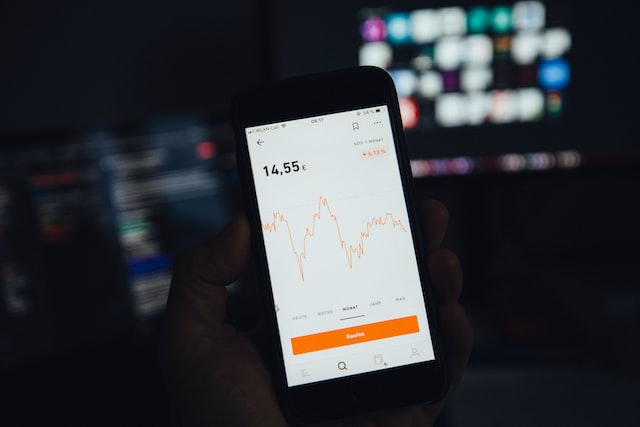Forex Trading Tips for Nomads
When it comes to trading, the technology world has allowed it to be one of the most accessible things to do. No matter where you are, using a smartphone, you can enter trading platforms and work on the market. For those who love to travel, it can be a great way to earn a little extra income. Here are some of our top tips.

Choose The Right Broker
Choosing the right forex trade broker is crucial for your success as a forex trader. Look for a broker that is regulated by a reputable financial authority. This will ensure that the broker is following strict rules and regulations to protect traders. Choose a broker that offers a user-friendly trading platform that is compatible with your trading style and needs. Look for features such as charting tools, real-time quotes, and technical indicators.
Pay attention to the fees and commissions charged by the broker. Look for a broker with low spreads and transparent pricing. Choose a broker with excellent customer service that is available 24/7. This will ensure that you can get help and support when you need it.
Look for a broker that offers a variety of payment options, such as credit cards, bank transfers, and e-wallets. This will make it easier for you to deposit and withdraw funds. Choose a broker that provides educational resources, such as webinars, tutorials, and market analysis. This will help you improve your trading skills and stay up to date on the latest market trends.
Knowing The Market
Knowing the forex market is crucial for success as a forex trader. Economic indicators such as GDP, inflation, and interest rates can have a significant impact on currency values. Stay up to date on these indicators and their potential impact on the market. Political events such as elections and policy decisions can also impact currency values. Stay informed about political developments and how they could impact the market.
Technical analysis involves using charting tools and indicators to identify trends and potential trading opportunities. Learn how to read charts and use technical analysis tools to make informed trades. Market sentiment refers to the overall attitude of traders towards a particular currency. Stay aware of market sentiment and how it could impact currency values.
Central banks can have a significant impact on the forex market through interest rate decisions and other policy measures. Keep an eye on central bank actions and their potential impact on the market. Stay informed about the latest news and media coverage related to the forex market. This can help you identify potential trading opportunities and stay up to date on market trends.

Diversification
Diversifying your forex portfolio is important for managing risk and potentially increasing profits. Instead of focusing on a single currency pair, spread your chances by investing in different currency pairs. This can help you take advantage of different market trends and potentially increase profits.
Employing different trading strategies can help you diversify your portfolio and potentially increase profits. For example, you can use a combination of technical and fundamental analysis or employ different management techniques. In addition to forex, you can also invest in other markets, such as stocks, commodities, and indices. This can help you spread your stocks and potentially increase profits.
Instead of focusing on short-term trades, you can also consider long-term positions. This can help you take advantage of different market trends and potentially increase profits. There are many trading tools available, such as automated trading systems and trading robots. Using different tools can help you diversify your portfolio and potentially increase profits.
By diversifying your forex portfolio, you can potentially manage any potential falls in price and increase profits.
Risk Management
Risk management is a crucial aspect of forex trading. A stop-loss order is an order placed with a broker to automatically close a trade if the market moves against you. This can help you limit losses.
Before entering a trade, set a realistic profit target and stick to it. This can help you avoid getting greedy and potentially losing profits. Position sizing involves determining how much money to spend on each trade. Use proper position sizing to ensure that you are not risking more than you can afford to do without.
Diversifying your forex portfolio can help you manage risk by spreading your investments across different currency pairs, markets, and trading strategies. Stay informed about market news and events that could potentially impact the forex market. This can help you make informed trading decisions and manage risk.
There are many risk management tools available, such as trailing stops and hedging. Use these tools to help you manage and protect your investments. By implementing these strategies, you can potentially minimise losses and increase profits in forex trading. However, keep in mind that forex trading carries caution, and it’s important to practice and use proper management techniques.

Using Leverage
With leverage, traders can control considerable positions with relatively small amounts of capital, which is a powerful tool in forex trading. However, it’s important to use leverage wisely to manage and avoid potential deficits.
Leverage amplifies both profits and losses, so it’s important to understand the dangers before using leverage. Ensure you fully understand everything involved and only use leverage if you can afford to do it without the capital.
Position sizing involves determining how much money to spend on each trade. Use proper position sizing to ensure that you are not spending more than you can afford. A stop-loss order is an order placed with a broker to automatically close a trade if the market moves against you. Use stop-loss orders to limit deficits.
Keep a close eye on your trades and be prepared to close them if necessary. Don’t let your emotions get in the way of sound trading decisions. When using leverage, it’s important to be conservative and not take on too much if it feels overwhelming. Use leverage wisely and only when necessary.





